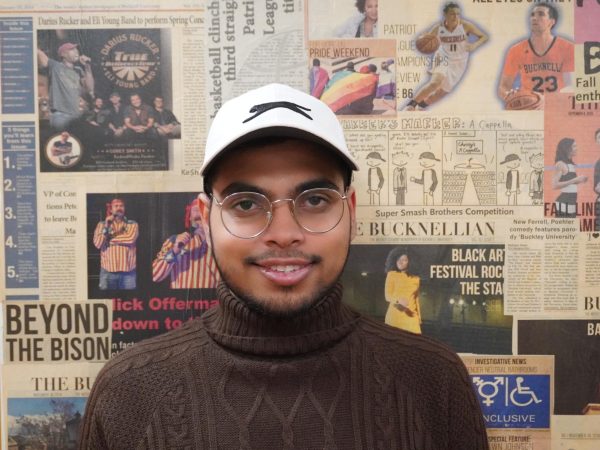You know the semester is nearing its end not by the calendar but by the change in people. Conversations become shorter. Eye contact fades. Everyone seems distant, physically present but emotionally withdrawn. We’re surrounded by friends, classmates and professors, yet, somehow, loneliness has crept into the air.
When I first arrived at Bucknell, I remember upperclassmen telling me, “Spring is the best time here.” They described a campus full of life— blankets scattered across the quad, spontaneous laughter echoing through Coleman, sunlight stretching late into the evening. Spring was supposed to be when the campus breathed most freely. But this year, that spring never fully arrived. The weather shifted, the flowers bloomed, but the energy never did.
Instead, what set in was a kind of quiet exhaustion. One that doesn’t always look like stress on the surface but sits beneath everything. Students moving quickly between classes, nodding without speaking. Friends saying “I’m fine” and changing the subject. People disappearing into their routines, carrying silent weights heavier than their backpacks.
It’s not just about finals, though they don’t help. It’s about the things we don’t know how to talk about. The jobs that haven’t worked out. The internships that never came through. The friends who are graduating, and the realization that nothing stays still. It’s about going home to uncertainty. Or staying behind, wondering what your place is when everyone else seems to have somewhere to be.
What’s most striking is how good we’ve become at hiding all of this.
We’ve grown into a culture of performance. We know how to keep going, how to stay busy, how to say “I’m just tired” instead of “I’m not okay.” There’s a quiet fear that if we let the feelings surface, or if we admit how overwhelmed, anxious or lost we really are, we might fall apart. So we keep moving. We stop sharing. We push through.
In doing so, we’ve stopped letting ourselves be fully human.
College often talks about academic growth, professional development, leadership. But rarely do we talk about emotional honesty. About allowing space for uncertainty, for fear, for vulnerability. We create environments where it’s easier to smile through pain than to admit we’re struggling, where burnout becomes normal and self-worth is tied to productivity.
And yet, everyone feels it. You can hear it in the pauses between conversations. In the nights when common rooms stay empty. In every “How are you?” that never lingers long enough to invite the truth.
This isn’t about blaming anyone— not the professors, not the institution, not even ourselves. It’s about naming what’s been left unsaid. That somewhere along the way, we started trading authenticity for composure. And in doing so, we lost pieces of ourselves.
The irony is, we crave connection more than ever. We want to feel seen, understood, supported. But we’ve built habits of hiding so deep that even when someone asks if we’re okay, we rarely say how we really are.
As we reach the end of this academic year, maybe we need more than celebration or closure. Maybe we need honesty. Maybe we need to stop pretending that being strong means being silent.
This is a time of transition— for seniors preparing to leave, for first-years still finding their way, for everyone in between. It’s okay to not have answers. It’s okay to feel sad, scared or uncertain. It’s okay to miss people before they’ve even left. And it’s more than okay to talk about it.
Because if we want a community that feels like more than just a place we pass through, we have to start by being real with each other. Real about how we’re feeling. Real about what we’re carrying. Real about what it means to be human in a world that often forgets to ask.
Maybe spring didn’t bloom the way we hoped this year. But there’s still time to reconnect, to reflect and to remember that we are allowed to feel. Even now. Especially now.



















